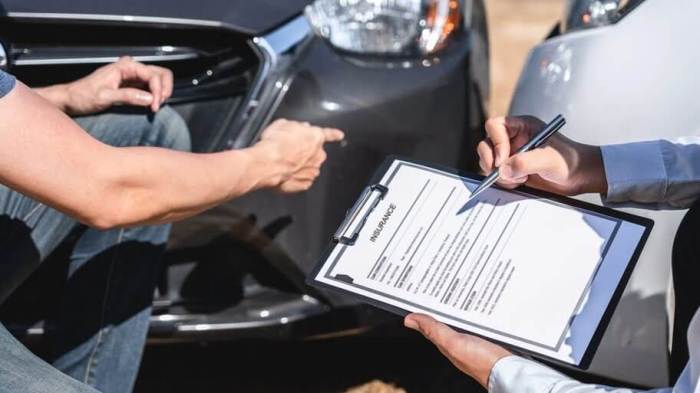
Can I have car insurance in a different state? It’s a question many people ask, especially if they’re moving, traveling frequently, or spending extended periods of time elsewhere. The answer, however, isn’t always straightforward. While you might think you can simply switch your insurance to a new state, the reality is that car insurance is closely tied to your residency.
State laws and regulations dictate how insurance companies operate, and they often require policyholders to be residents of the state where they’re insured. This means proving your residency with documentation like a driver’s license, voter registration card, or utility bills.
Understanding State Residency and Insurance

To obtain car insurance in a specific state, you must establish residency within that state. This is because insurance rates are often based on factors like the state’s driving laws, accident statistics, and the cost of living.
Residency Requirements
Each state has its own set of criteria for determining residency. While there’s no universal definition, most states consider the following factors when evaluating residency:
- Primary Residence: The location where you spend the majority of your time and consider your primary home. This is typically your permanent address and where you receive mail.
- Driver’s License: A driver’s license issued by the state where you claim residency is a strong indicator of your residency.
- Voter Registration: Being registered to vote in a particular state can demonstrate your intent to establish residency.
- Employment: Working in a state can be evidence of residency, particularly if you have a full-time job or a significant income source.
- Property Ownership: Owning real estate, such as a house or condominium, in a state is generally considered a strong indicator of residency.
- Bank Accounts: Maintaining primary bank accounts in a state can be considered evidence of residency.
- Utility Bills: Utility bills, such as electricity, gas, or water, addressed to you at your residence in a state can help establish residency.
- Tax Returns: Filing state income tax returns in a particular state is often considered evidence of residency.
Documentation
To prove residency, you may need to provide documentation such as:
- Driver’s License: A valid driver’s license issued by the state where you claim residency.
- Voter Registration Card: A card showing you are registered to vote in the state.
- Lease Agreement: A copy of your lease agreement or deed if you own property in the state.
- Utility Bills: Recent utility bills showing your name and address in the state.
- Bank Statements: Recent bank statements showing your name and address in the state.
- Paystubs: Recent paystubs showing your employer’s address in the state.
- Tax Returns: Copies of your recent state income tax returns.
Navigating Insurance Across State Lines

Obtaining car insurance in a state different from your primary residence can present unique challenges. You might encounter stricter requirements, different coverage options, and potentially higher premiums. Understanding these complexities is crucial before making any decisions.
Non-Resident Car Insurance
Non-resident car insurance is designed for individuals who reside in one state but own and operate a vehicle in another. It provides coverage for accidents and other incidents that occur while driving in the state where the insurance is purchased. Non-resident insurance is generally more expensive than resident insurance due to factors like the increased risk associated with drivers who are less familiar with the local roads and traffic conditions.
Benefits and Drawbacks of Having Insurance in a Different State
It’s essential to weigh the potential benefits and drawbacks of having insurance in a state different from your primary residence.
- Potential Benefits:
- Lower Premiums: Some states have lower insurance rates than others, which could result in significant savings. For instance, if you live in a state with high insurance rates but frequently travel to a state with lower rates, you might consider purchasing insurance in the lower-rate state. However, ensure that the lower rates are not offset by limited coverage or stricter requirements.
- Specialized Coverage: Some states offer unique insurance options or coverages that may not be available in your primary residence. For example, a state with a high number of classic car enthusiasts might offer specialized insurance for vintage vehicles.
- Potential Drawbacks:
- Limited Coverage: Non-resident insurance might have limited coverage compared to resident insurance, especially if you spend most of your time in your primary residence. For instance, some policies might not cover accidents that occur outside the state where the insurance was purchased.
- Higher Premiums: While some states have lower insurance rates, others may have higher rates for non-residents, especially if you are considered a high-risk driver. You should carefully compare rates from different insurers and consider the overall cost before making a decision.
- Stricter Requirements: Some states may have stricter requirements for non-resident insurance, such as a minimum amount of coverage or a longer driving history. This can make it difficult to obtain insurance or lead to higher premiums.
Factors Influencing Insurance Rates in Different States: Can I Have Car Insurance In A Different State

Insurance rates can vary significantly from state to state, even for individuals with similar driving histories and vehicle types. Several factors contribute to these differences, making it essential to understand how these elements impact your insurance premiums.
Driving History
Your driving history plays a significant role in determining your insurance rates. This includes factors such as accidents, traffic violations, and driving experience.
- States with higher accident rates generally have higher insurance premiums to cover the increased risk. For example, states with a higher number of accidents involving drunk drivers may have higher insurance rates for drivers with DUI convictions.
- Similarly, states with stricter traffic laws and penalties for violations may have higher rates for drivers with a history of speeding tickets or other offenses. For instance, a state with a zero-tolerance policy for underage drinking and driving might have higher rates for young drivers with DUI convictions.
- States with a higher proportion of young drivers might also have higher average insurance rates due to the higher risk associated with less experienced drivers.
Vehicle Type, Can i have car insurance in a different state
The type of vehicle you drive also influences your insurance rates.
- States with a higher number of luxury vehicles or high-performance cars may have higher insurance rates for these vehicles due to their higher repair costs and potential for higher claims.
- States with a higher prevalence of theft or vandalism may have higher rates for specific vehicle models known to be more susceptible to these issues. For example, states with a higher crime rate might have higher rates for popular models that are frequently targeted by thieves.
- The safety features of your vehicle, such as anti-theft devices, airbags, and electronic stability control, can also affect your insurance rates. States with stricter safety regulations or higher emphasis on vehicle safety might offer lower rates for vehicles with advanced safety features.
Coverage Levels
The amount of coverage you choose for your insurance policy significantly impacts your premiums.
- States with higher minimum liability coverage requirements may have higher average insurance rates, as drivers are required to carry more coverage. For example, a state requiring higher liability limits for bodily injury and property damage might have higher average insurance rates.
- States with a higher prevalence of uninsured drivers might have higher rates for optional coverage, such as uninsured/underinsured motorist coverage, to protect drivers from financial losses in accidents involving uninsured or underinsured drivers.
- States with a higher cost of living, particularly for medical expenses, may have higher rates for medical payments coverage, as medical costs associated with accidents are likely to be higher.
State-Specific Regulations and Insurance Laws
State regulations and insurance laws play a crucial role in determining insurance rates.
- States with strict regulations regarding insurance company practices, such as rate setting and claims handling, may have lower average insurance rates. These regulations can help prevent insurance companies from charging excessive premiums or denying claims unfairly.
- States with a higher number of insurance companies operating within their borders may have more competitive rates, as companies compete for customers by offering lower premiums. For example, a state with a large number of insurance companies might have more competitive rates due to the increased competition.
- States with specific programs or initiatives aimed at reducing insurance rates, such as discounts for safety features or driver education programs, might have lower average insurance rates. For example, a state with a program that provides discounts for drivers who complete a defensive driving course might have lower rates for drivers who participate in the program.
Summary
Ultimately, the decision of whether or not to get car insurance in a different state depends on your individual circumstances and needs. If you’re moving permanently, it’s essential to switch your insurance to the new state. However, if you’re only traveling or spending a short period of time in another state, you might be able to get by with your existing insurance, but it’s crucial to check the terms and conditions of your policy and understand the potential risks involved.
FAQ Explained
What if I’m only driving in another state for a short period of time?
If you’re only driving in another state for a short period of time, your current insurance may cover you. However, it’s essential to check the terms and conditions of your policy to ensure you have adequate coverage.
What if I’m a student living in a different state?
If you’re a student living in a different state, you may be able to get car insurance in that state. However, you’ll need to provide proof of residency, such as a lease agreement or student ID.
Can I get car insurance in a different state if I’m working there?
If you’re working in a different state, you may be able to get car insurance there, but you’ll need to provide proof of residency, such as a pay stub or tax return.




